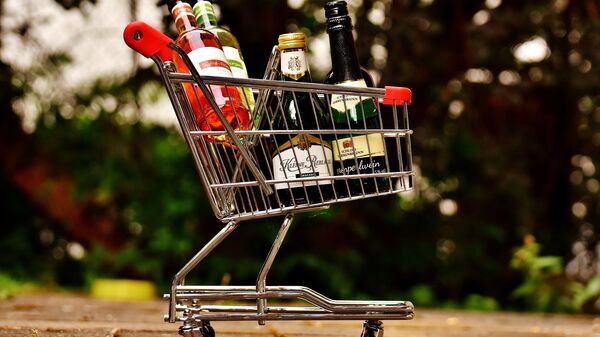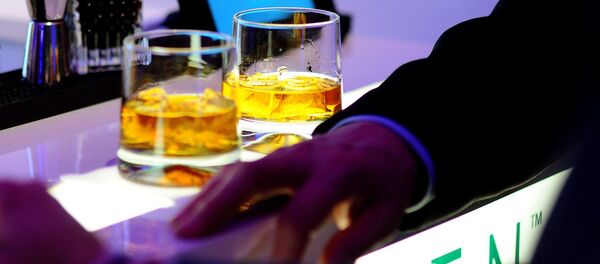Famous for its whisky, Scotland is now on course to introduce a minimum price for alcohol — possibly as early as next year — following a ruling by the UK Supreme Court in London on Wednesday, November 15. Similar legislation may also now be considered across the UK as well.
In a unanimous judgement, seven Supreme Court judges said legislation proposed by the Scottish Parliament five years ago did not breach European Union law. They ruled the measure was a "proportionate means of achieving a legitimate aim."
Supreme Court judgment has been handed down in Scotch Whisky Association and others (Appellants) v The Lord Advocate and another (Respondents) (Scotland) https://t.co/m99Wea88CQ pic.twitter.com/1t4nLzhI1v
— UK Supreme Court (@UKSupremeCourt) November 15, 2017
The Scottish Whisky Association had mounted a series of legal challenges against the move, claiming it was a "restriction on trade" and there were other more effective ways of tackling alcohol misuse.
"We will now look to the Scottish and UK governments to support the industry against the negative effects of trade barriers being raised in overseas markets that discriminate against Scotch whisky as a consequence of minimum pricing, and to argue for fair competition on our behalf," said Karen Betts, chief executive of the Scottish Whisky Association.
Our response to the @UKSupremeCourt decision on #MUP of alcohol: https://t.co/1zHbVLH5Tf
— Scotch Whisky Assoc. (@ScotchWhiskySWA) November 15, 2017
Chronic Drinking Problem
Scottish ministers insist, however, that a 50-pence-per-unit minimum (65 cents) would help tackle the country's chronic "unhealthy relationship with drink" by raising the price of cheap, high-strength alcohol.
The aim of the Scottish government is to reduce the amount that problem drinkers consume simply by raising the price of the strongest, cheapest drink. Any extra money raised, however, will not benefit the official financial coffers — instead the extra cash will go to the retailer as it is not a tax or duty increase.
Delighted that the UK Supreme Court has rejected the @ScotchWhiskySWA appeal and Scotland will implement minimum unit pricing. This is a fantastic day for public health 😀 #mupsaveslives
— AlcoholFocusScotland (@AlcoholFocus) November 15, 2017
The new laws will be trialed over an experimental period and expire after six years unless renewed. Many supporters believe it is necessary as Scottish people spend on average 20 percent more on alcohol than their counterparts in England or Wales.
"Alcohol is 60 percent more affordable in the UK than it was in 1980 and alcohol misuse costs Scotland £3.6 billion each year [US$4.73billion] — £900 for every adult [US$1184]. There is strong evidence that tackling price helps reduce consumption and related harm," said Scotland's health secretary, Shona Robison.
The UK Supreme Court has ruled in favour of the Scottish Government’s legislation to set a minimum unit price for the sale of alcohol. pic.twitter.com/ujwFK6ZK5K
— PublicHealthEngland (@PHE_uk) November 15, 2017
Speaking after the ruling, she said:
"This is a historic and far-reaching judgement and a landmark moment in our ambition to turn around Scotland's troubled relationship with alcohol. In a ruling of global significance, the UK Supreme Court has unanimously backed our pioneering and life-saving alcohol pricing policy."
Miles Briggs, the Scottish Conservatives health spokesman, said his party would support the Scottish government on implementing the legislation.
"We look forward to seeing whether or not minimum pricing can make any impact on Scotland's complex and damaging relationship with alcohol," Mr. Briggs said.
Hit Consumption
It discovered that super-strength cider and own-brand vodka and whisky could be purchased for as little as 18 pence (29 cents).
The decision means that the price of the cheapest bottle of red wine will rise to £4.70 (US$5.50), a four-pack of lager will cost at least £4 (US$5.24), and a bottle of whisky will be at least £14 (US$18.43).
The move is unlikely to have any impact in bars and nightclubs where most already charge more than 50 pence per unit. The aim is to hit consumption of strong alcohol being drunk in homes.



